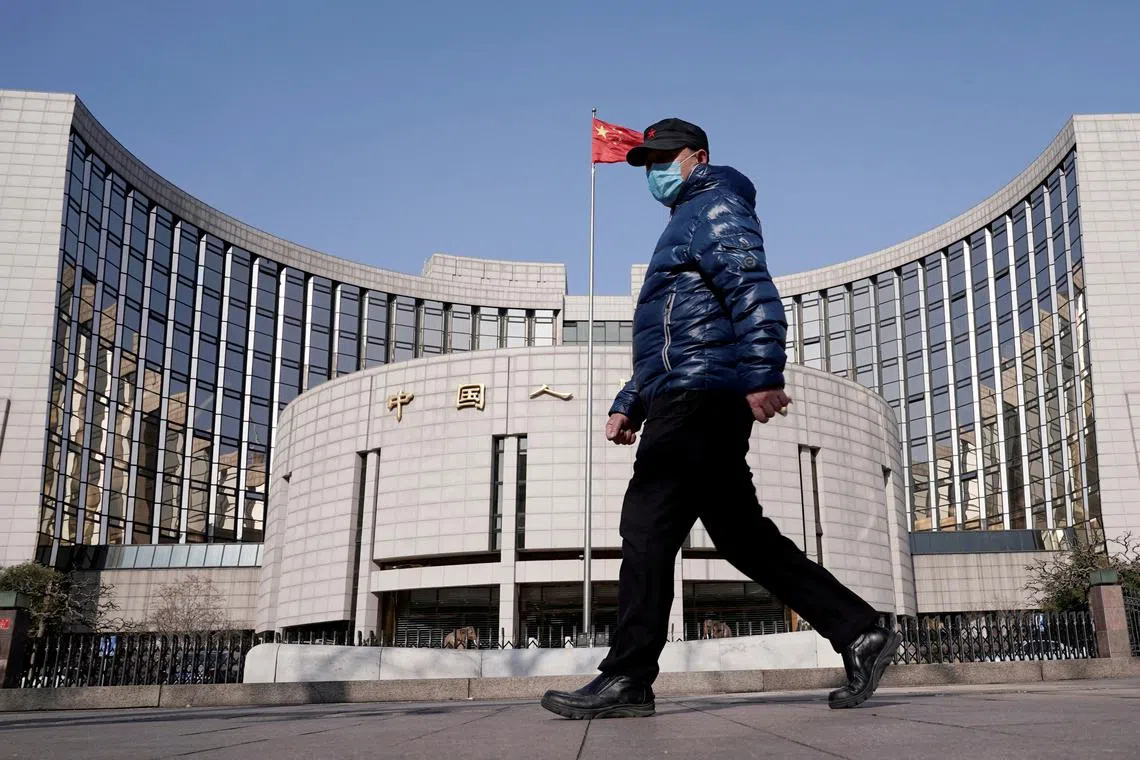Investment into China picks up in January after late 2022 drop
Sign up now: Get ST's newsletters delivered to your inbox

China recorded 128 billion yuan (s$24.9 billion) in new actually utilised foreign investment last month.
PHOTO: REUTERS
Follow topic:
BEIJING - New foreign investment into China picked up in January to the highest level since June 2022, reversing two months of double-digit drops as Beijing attempts to attract more investment and help the economy rebound.
China recorded 128 billion yuan (S$24.9 billion) in new actually utilised foreign investment in January, the Ministry of Commerce said on Monday.
That was 14.5 per cent higher than the same month in 2022, according to the ministry, with a 75 per cent jump in investment into high-tech manufacturing.
The government’s push to bring in more investment comes as it is clearly concerned about the prospect of foreign companies in China either leaving or reducing their investments. Many companies found it difficult to do business in China over the past three years during zero-Covid,
Late last week, Commerce Minister Wang Wentao visited foreign companies in Shandong province and promised the government would step up its efforts to attract more “high-quality” foreign companies, as well as do more to convince those already in the country to stay.
Struggling confidence
Foreign business confidence in China was undermined in 2022
The close to 10 per cent decline in foreign industrial company profits in 2022 was the worst on record.
While Shanghai’s European Union Chamber of Commerce has asserted that companies are not leaving China as the market “is simply too big and too important”, the chapter’s chair, Ms Bettina Schoen-Behanzin, said last week that Covid-19 policies have impacted operations.
“They are putting a fence around China,” she said.
The shift away from China could be seen in the strategies of several companies – including Apple, whose suppliers in Vietnam and India have been boosting output as the company l ooks to reduce dependence on Chinese production.
Japan’s net 1.4 trillion yen (S$13.9 billion) in investments into China and Hong Kong in 2022 was the lowest since 2016, according to Bloomberg calculations. More than half of major Japanese manufacturers surveyed by the Nikkei newspaper in late 2022 said they planned to reduce their reliance on China as a supplier of parts.
Some Chinese provinces and cities are trying to reverse the trend. Tianjin hosted an investor roadshow in Tokyo and Osaka in January, and Qingdao did the same in February.
Japan is the third-largest source of foreign direct investment into Qingdao, with a stock of US$6.5 billion (S$8.7 billion) invested in the city.
Rebounding portfolio flows
There are some signs of renewed interest in investing in China in 2023 from financial market participants. Foreigners returned to China’s stock market with a vengeance, buying more shares in January alone than they did for the whole of 2022.
Whether that interest is sustained will depend at least partly on the strength of the economic recovery. Growth well above the 3 per cent expansion seen in 2022 would also make the market attractive to further foreign direct investment into consumer goods and other sectors.
However, bond investors resumed selling in January after a one-month pause, underscoring the relatively unattractive yields on renminbi-denominated debt as Beijing keeps monetary policy loose to support growth. By contrast, the United States Federal Reserve and other global central banks have been raising rates.
The recent announcement of sanctions on two US companies for selling arms to Taiwan
The measures were mostly symbolic and the Ministry of Commerce vowed to be sparing in its use of its new sanctions list. But there remains the clear possibility of fines, bans on doing business in China and other restrictions on companies that get caught up in tensions with the US or other nations. BLOOMBERG

